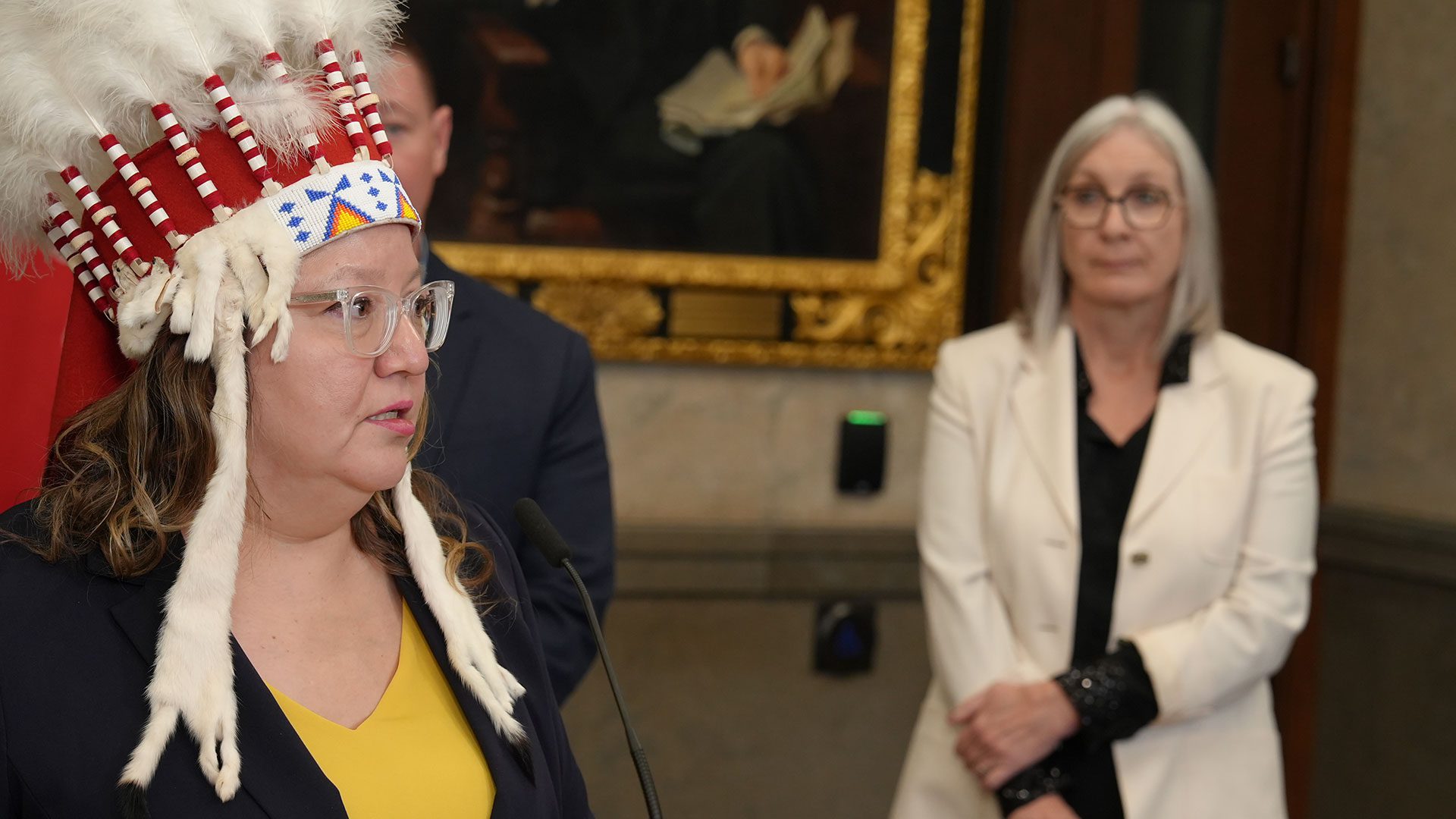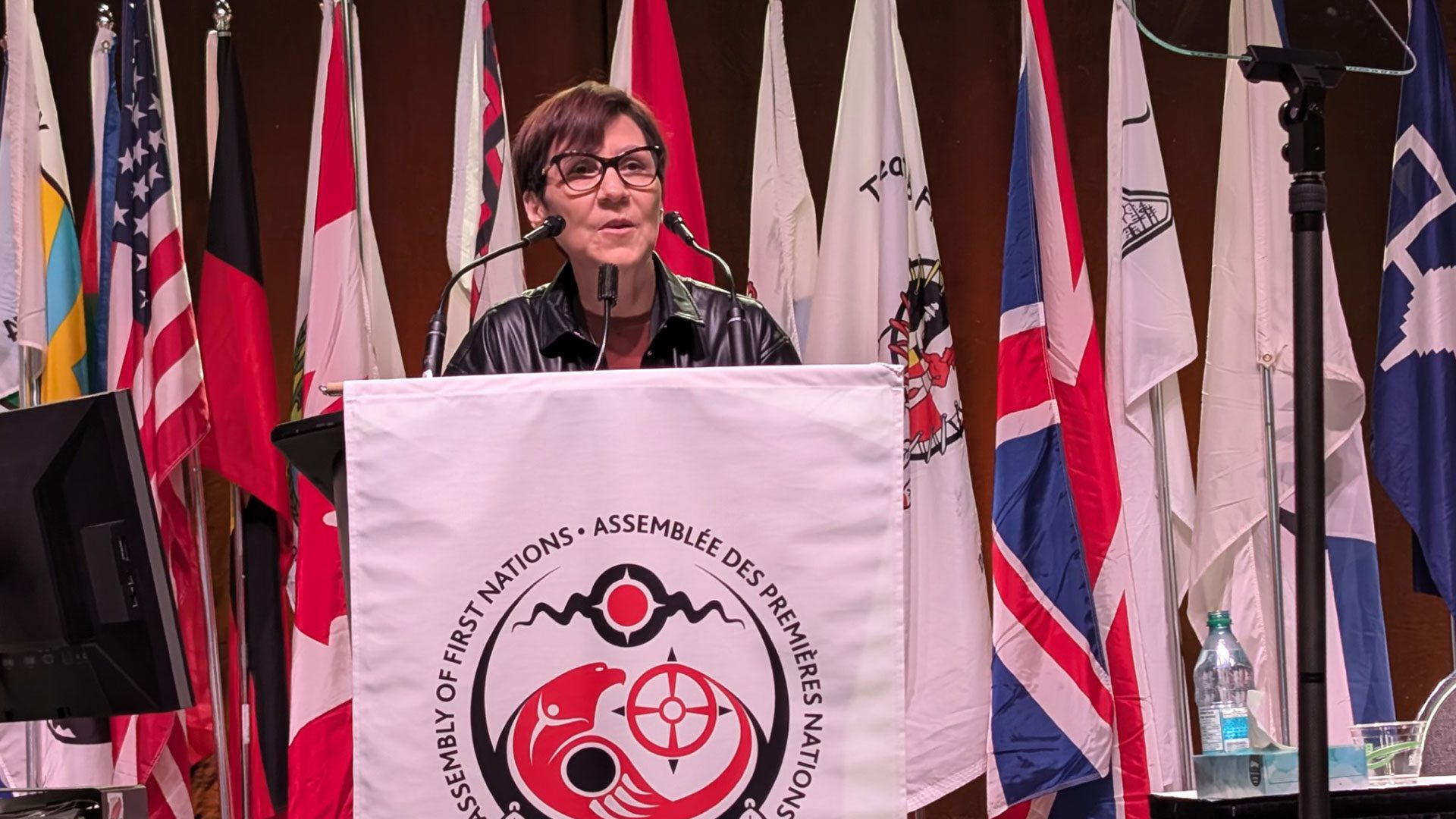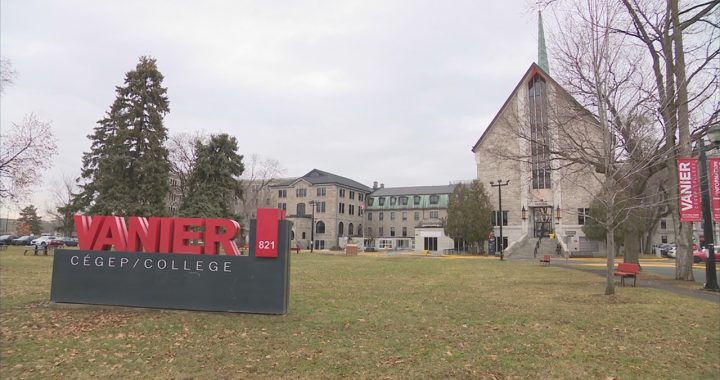The First Nations Child and Family Caring Society (Caring Society) says it’s preparing resolutions for the Assembly of First Nations (AFN) meeting in December as part of its work to reform on-reserve child welfare.
This comes after First Nation chiefs on Oct. 17 voted down a proposed $47.8 billion Final Settlement Agreement (FSA) from Canada to reform the system.
The FSA was negotiated by the AFN, Nishnawbe Aski Nation, which represents 49 First Nations in northern Ontario and the Chiefs of Ontario which represents 133 First Nations in the province.
But there were too many questions from chiefs and the Caring Society, which filed the original discrimination complaint against Canada at the Candian Human Rights Tribunal in 2007, for the FSA to pass.
“We lost confidence in the Assembly First Nations,” said Raymond Shingoose, president of the Caring Society in an interview with Nation to Nation host Fraser Needham. “They really put us into a bizarre situation where (negotiations)…reverted to a party-driven process rather than a chiefs and assembly process.
“That was very concerning to us.”
On the same day 414 chiefs voted on the FSA, the minister of Indigenous Services sent a letter to Shingoose.
Patty Hajdu thanked the Caring Society for raising concerns about the FSA, but confirmed the government had no interest in changing the agreement.
“The Caring Society’s latest vision for the First Nations Child Family Services Program, however, would see Canada, the Assembly of First Nations, the Chiefs of Ontario and Nishnawbe Aski Nation adopt an approach that is not consistent with the terms accepted by all parties in the Agreement-in-Principle,” said Hajdu.
Hajdu was responding to correspondence from the Caring Society dated Aug. 7 where the organization outlined a number of issues.
“Our concerns include the funding of the 10-year agreement being subject to annual parliamentary decision and the reality that the decision of one government and Parliament does not bind future ones,” Shingoose’s letter to Hajdu said.
“The Caring Society also has deep concerns with the closed nature of the governance structure proposed in the draft FSA and the lack of regional First Nation participation in the ongoing governance of the reformed program provided for in the draft FSA.”
The Caring Society noted it’s up to the federal government “to consult with First Nations rights holders on a nation-to-nation basis. This responsibility of free, prior and informed consent cannot be offloaded to the Assembly of First Nations or any Party to the draft FSA.”
The minister responded by saying, “Canada remains willing to meet with the Caring Society, the Assembly of First Nations, Chiefs of Ontario and Nishnawbe Aski Nation for confidential discussions on the Final Agreement.”
The letter cc’d Stuart Wuttke and Adam Williamson, two lawyers for the AFN; Ontario AFN Regional Chief Abram Benedict; Nishnawbe Aski Grand Chief Alvin Fiddler; and David Pratt, vice-chief of the Federation of Sovereign Indigenous Nations in Saskatchewan. AFN National Chief Cindy Woodhouse Nepinak is not included.
Shingoose has told APTN News the process was flawed.
“I’m just so frustrated with the Assembly of First Nations and Canada,” he said. “To call them [AFN] the new colonial arm of Canada to oppress children and families through the agency and our First Nations … very disturbing.”
In the end, 267 chiefs voted against the FSA. Shingoose said now they have an opportunity to do it right.
“We’re not operating behind the scenes – we’re actually operating with their leadership from each of our regions,” Shingoose told APTN’s political show, Nation to Nation. “We are preparing for the assembly in Ottawa and putting another resolution forward in regards to establishing a National Children’s Commission and also re-establishing the National Advisory Committee.”
The FSA and problems right off the bat

After several revisions, the proposed agreement in principle was reached in July just ahead of the AFN’s summer meeting in Montreal.
But cracks began to form before that.
As previously reported, three senior members of the AFN executive – Terry Teegee (B.C.), Bobby Cameron (Saskatchewan) and Ghislain Picard (Quebec-Labrador) – outlined their concerns in a letter to Woodhouse Nepinak in June.
Their concerns mirrored those of the Caring Society. And the three regional chiefs accused the AFN of overstepping its mandate. They also accused the AFN of not sharing information with chiefs outside of Ontario.
Khelsilem is a councillor with the Squamish Nation who tabled the motion to have the FSA defeated. He, like the three members of the executive, believed the process to negotiate the FSA was flawed. He said the multi-year campaign ran out of the national chief’s office with no regard for leadership across the country and that has to change.
“The new process that we’ve approved at the assembly recently is that there has to be a period of time of 120 days when a final agreement is put forward for chiefs to be able to review and understand the agreement,” he said.
“There has to be a process where there’s a back and forth with the regions and with the First Nations that a draft agreement would put forward and there’s an opportunity to provide more feedback, more recommendations amendments, if needed, until all the regions, can build consensus and support.
“So it really speaks to process that we’re going to have enough time to include the experts include the First Nations leadership that want to be consulted and meaningfully on this.”
He added that his nation also sent letters to Prime Minister Justin Trudeau and Indigenous Services Minister Patty Hajdu about the FSA but hasn’t received a response.
Abram Benedict is the regional chief for Ontario and a staunch supporter of the FSA.
“In my region, the Ontario region, I have an endorsement from my chiefs based on what was provided to them and they’re supporting that,” he told APTN. “That’s based on all the back and forth conversations that we’ve had, that’s based on the several years that we have involved in the tribunal process that’s based on at least a year plus in a negotiation process.”
Benedict said he knew going into Calgary the deal was facing opposition.
“I had done a number of presentations to some other regions and had answered a number of questions around Ontario’s position on this,” he said. “There was some feelings that there was not support for this proposal. We knew going into the assembly that there were some opposition and we know that there’s been some misinformation that’s been spread along for the last several weeks and months of leading into this assembly around what this package means.”
After the FSA was defeated, Woodhouse Nepinak delivered a short message and a statement was posted online.
“The results of this Assembly send a strong message to the Government of Canada that they must do better,” she told the chiefs. “Last year, more First Nations children were removed from their communities and families than any time in Canada’s history. This is unacceptable. As we move forward, the thousands of First Nations children and families are in our hearts, those who have been separated, those in crisis.
“We also think of our Chiefs, who are returning home without a clear path forward. The status quo has prevailed, as has the industry that was built around apprehending First Nations children from their families.”
Some communities also lamenting the failure of the agreement.
According to a statement released Friday from the Windigo First Nations Council representing seven nations in northern Ontario, the agreement would have provided important money to “prevent and mitigate against violence imposed on our people.”
“WFNC communities are currently dealing with a crisis related to addictions and suicide,” the statement said. “In the 3 days of the AFN assembly alone, we lost several members to child welfare interventions and addictions and suicide. To us, prevention dollars is the difference between losing our children to child welfare and suicide AND having the capacity to support our families at home.
“We feel that our interests as Chiefs were overridden by other spokespeople with priorities distinct from our own. It is our view that those who opposed the agreement did not truly understand the benefits that direct access to prevention dollars would have provided. As leaders on the front lines, we are emphatic that it is us who are best suited to determining how these dollars can be utilized most effectively.”
The failure of the FSA to pass does not have effect the $23 billion compensation deal with the government.
Origins of the FSA

The FSA came about after Canada was found guilty of “recklessly” and “willfully” discriminating against First Nations children involved in the child welfare system on reserve by the Canadian Human Rights Tribunal (CHRT).
In 2016, the tribunal ordered Canada to pay each child and caregiver $40,000 each as compensation and come up with a plan to end its discriminatory practices. Since that time, the CHRT has kept track of Canada’s work on the file and issued nearly two dozen “non-compliance” orders.
One of the issues chiefs and the Caring Society had was that the FSA would end the tribunal’s role in keeping Canada accountable to First Nations children.
“Within 30 days following the signing of the Final Settlement Agreement, the Parties shall file a joint Notice of Motion with the Tribunal in which they shall seek an order from the Tribunal that the Final Settlement Agreement is approved and that the Tribunal’s jurisdiction over the complaint and all associated proceedings has ended save for those relating to Jordan’s Principle,” the FSA said.
According to the FSA, if there was discrimination in the future, a nation “may seek an order from a court of competent jurisdiction that the Parties are substantially deprived of the benefit of the FSA.”
And, if the court agrees with the nation, that community can start all over at the Canadian Human Rights Tribunal.
Then there’s the $47.8 billion.
According to the government, the FSA provides “stable and predictable funding over a longer period that fully supports a reformed program and accounts for the increased costs of services in remote communities.”
But is that money guaranteed?
According to the FSA, “Any and all funding commitments by Canada or amendments agreed to by the Parties in this Final Settlement Agreement remain subject to annual appropriation by the Parliament of Canada, or other necessary approval processes required by the Government of Canada.”
APTN reached out to Indigenous Services for clarification and was not satisfied with the answers provided.
“We need to get rid of those multiple loopholes for Canada where it was like, ‘We’ll pay this amount of money but it subject to our own undefined approval processes and parliamentary appropriations and everything else,’” said Cindy Blackstock, executive director of the Caring Society.
“There were so many holes in that agreement. Where Canada could have underfunded [the on-reserve child welfare system] in a way that creates discrimination and that would have not been a breach of the agreement.”
APTN has sent a number of interview requests to Woodhouse Nepinak’s office.
One interview was cancelled and the organization, which represents more than 600 First Nations in Canada, has not responded to requests since.
Final versions of the resolutions chiefs voted on, including amendments, have not yet been released.
With files from Leanne Sanders, Paul Barnsley and Dennis Ward










